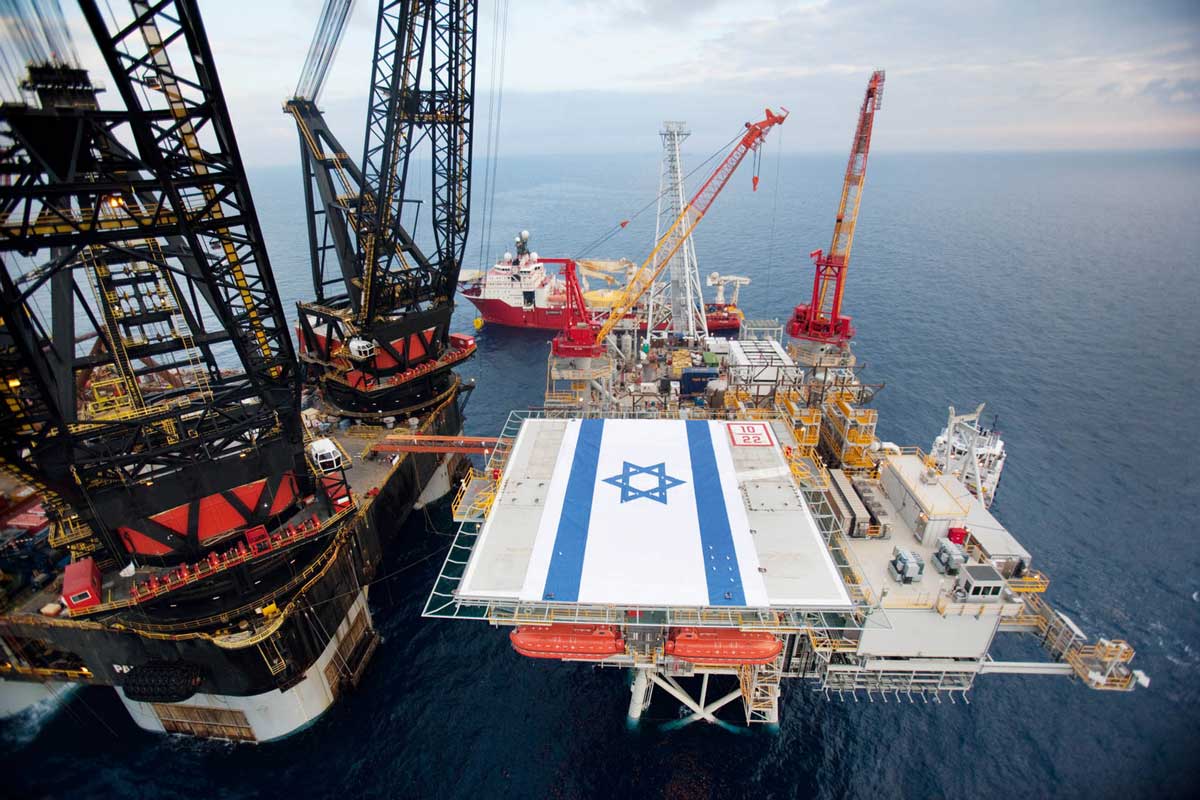With Israel looking for ways to export some of its natural gas to Europe, some experts believe that the Southern Gas Corridor (SGC) mega-pipeline, which will carry gas from the Caspian region to Europe beginning in 2018, may be a ready-to-go option.
“The Southern Gas Corridor is the most viable option to exports Israeli gas,” Cyril Widdershoven from the Mediterranean Energy Political Risk Consultancy told Trend news agency at the end of August. “It will not only provide access to the Turkish market, but will also provide an opportunity to transport it further to Europe.”
Turkey is one of six contributing countries to the SGC, which consists of three segments, or pipelines: the South Caucasus Pipeline, the Trans Anatolian Pipeline (TANAP) and the Trans Adriatic Pipeline (TAP). The corridor is expected to transport 16 billion cubic meters (bcm) of natural gas from Azerbaijan’s Shah Deniz-2 gas field located beneath the Caspian Sea., some which will be used by Turkey and the rest sent to Europe via southern Italy,
Turkey is housing TANAP, the middle segment of the SGC, which stretches 1,850 km across the country from its far eastern border with Georgia to its far western border with Greece.
Israel is exploring options to sell some of the gas from its Tamar and Leviathan offshore fields, discovered in the last two decades, eyeing energy-starved Europe as a likely market. Nearby Turkey provides another market but also a promising route to move gas westward through pipelines destined for Europe.
"We want to build a pipeline stretching from Israel to Turkey in order to be able to export natural gas from Israel to Turkey," Israeli Energy Minister Yuval Steinitz said at the 22nd World Petroleum Congress held in Istanbul in July. “Israeli gas could be delivered to Europe and to the Balkans through Turkey.”
While Israel is located in the Middle East, throughout most of its modern history it had not benefited from the region’s vast hydrocarbon deposits beneath countries like Egypt and Saudi Arabia. At the turn of the century, however, things began to change.
In 2009, drilling at a depth of to a depth of 4,900 meters beneath the Mediterranean Sea just 80 kilometers west of the port city of Haifa, Israel struck gold. The Tamar gas field was discovered, and estimated to contain over 200 billion cubic meters of natural gas.
One year later, the Texas-based Noble Energy announced that seismic studies indicated there was a 50 percent likelihood that the Leviathan field, situated 47 km southwest of Tamar, contained natural gas as well. With 450 billion cubic meters, Leviathan holds enough gas to meet Israel's domestic needs for 40 years.
Gina Cohen, an Israeli energy expert, and lecturer at Technion University in Haifa says that TANAP could be used to export Israeli gas to Europe.
“TANAP could potentially be used for some of the route to the Turkish-Greek border since the line has extra capacity in it,” Cohen told Caspian News. “It could potentially be used to transport gas within Turkey, or Israeli gas could enter the Turkish national transmission somewhere in the southern part of Turkey.”
“To reach Europe, however, from the Turkish western border, a new line would have to be used,” Cohen explained. “One such line is TAP, but all of its initial 10 bcm a year capacity has been booked by Azerbaijani gas,” she said. TAP begins at the Greek-Turkish border in western Turkey, traverses through the country as well as Albania, before dipping beneath the Adriatic Sea to southern Italy.
“Another option for Israel would be to use a relatively small line that exists between Turkey and Greece, or construct new lines between Turkey and Greece or Turkey and Bulgaria.”







 President Aliyev emphasized the critical role of the North-South Transport Corridor in fostering transport cooperation between Azerbaijan and Russi...
President Aliyev emphasized the critical role of the North-South Transport Corridor in fostering transport cooperation between Azerbaijan and Russi...
 Russian Foreign Minister Sergei Lavrov has reasserted that Moscow has no intentions to stop the fighting in Ukraine, even if peace talks commence.
Russian Foreign Minister Sergei Lavrov has reasserted that Moscow has no intentions to stop the fighting in Ukraine, even if peace talks commence.
 Iran has refuted reports of alleged damage to Shimon Peres Negev Nuclear Research Centre located southeast of Dimona, Israel, during the recent air...
Iran has refuted reports of alleged damage to Shimon Peres Negev Nuclear Research Centre located southeast of Dimona, Israel, during the recent air...
 Iran and Pakistan have signed eight cooperation documents in various fields, and agreed to strengthen ties to fight terrorism in the region.
Iran and Pakistan have signed eight cooperation documents in various fields, and agreed to strengthen ties to fight terrorism in the region.



